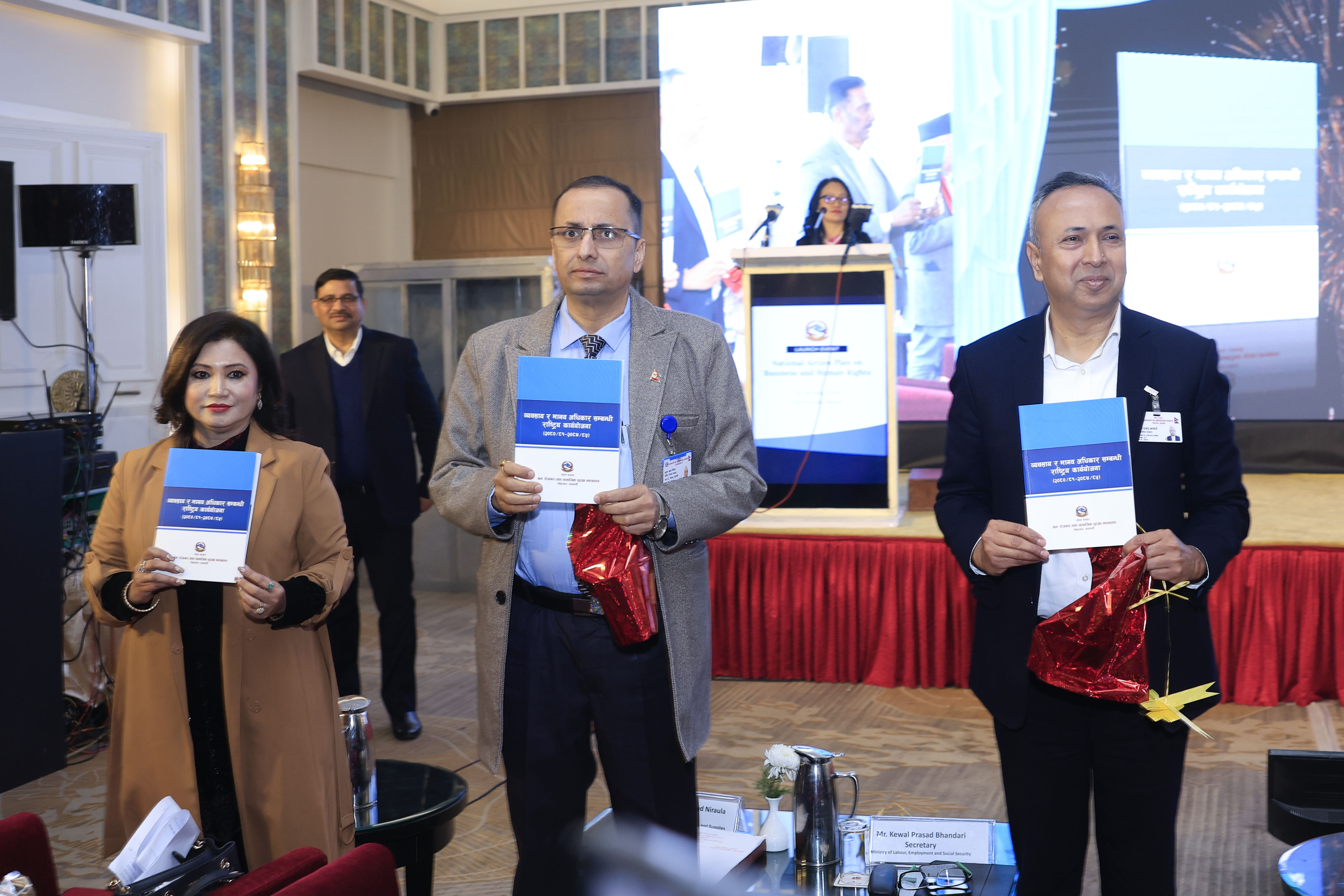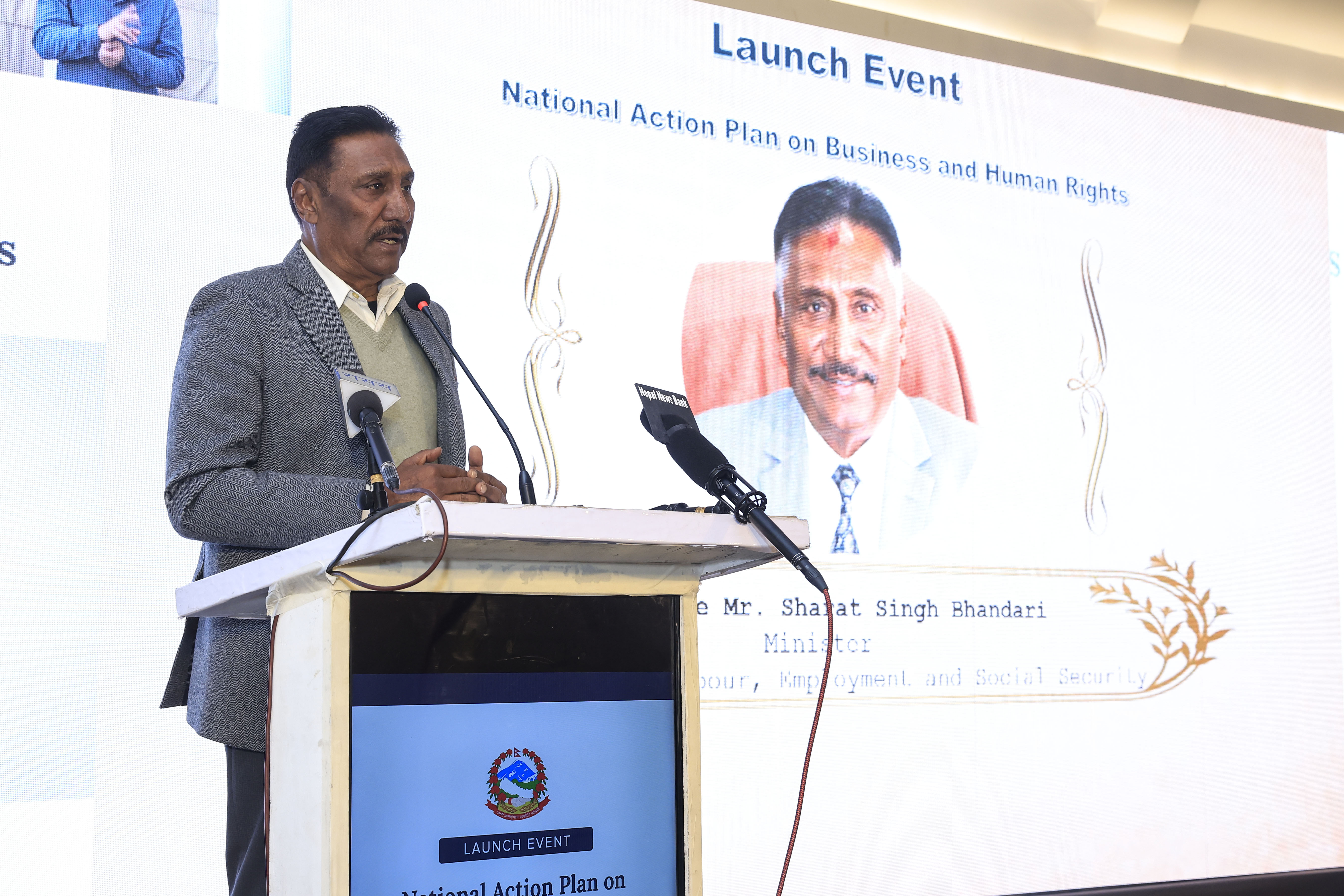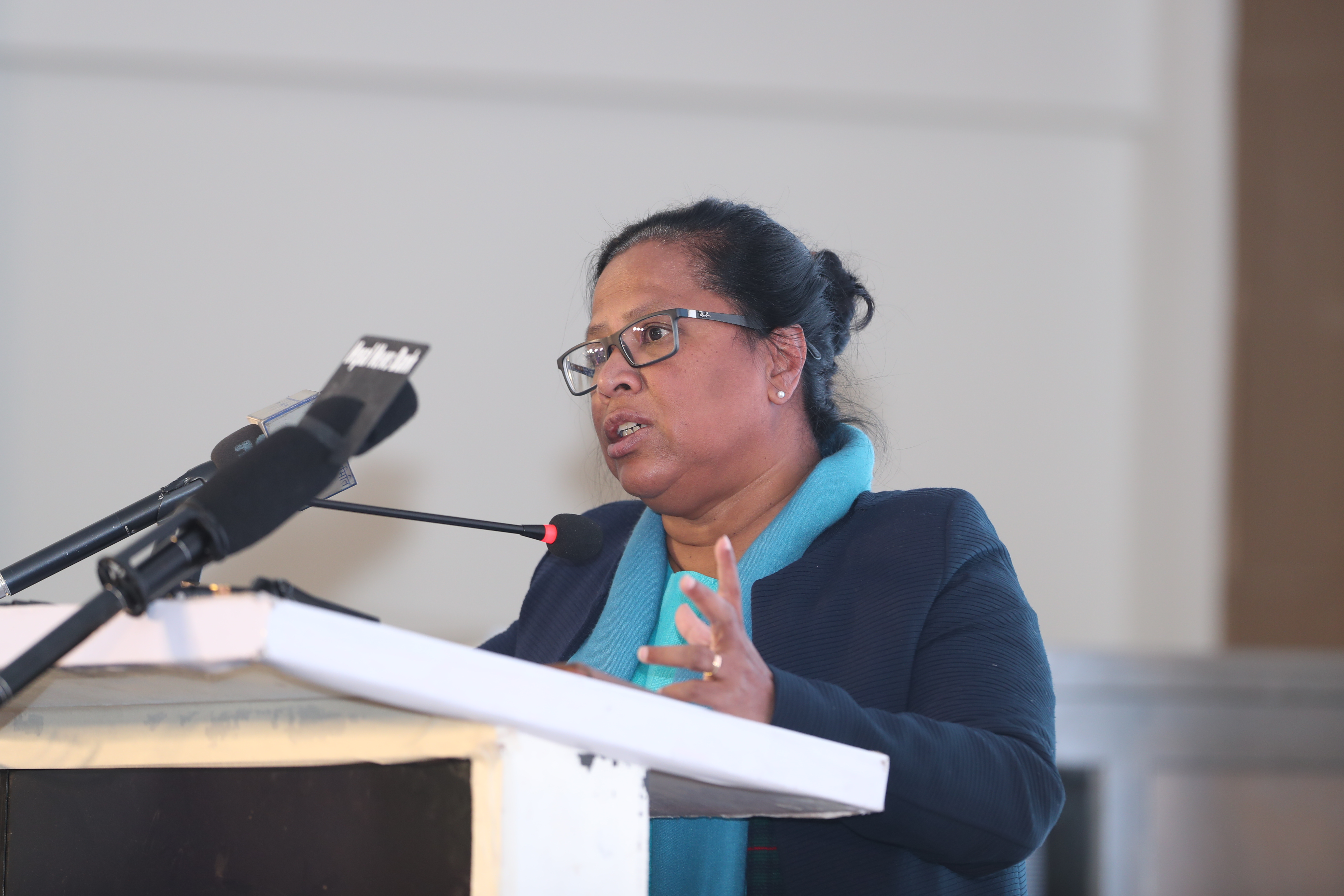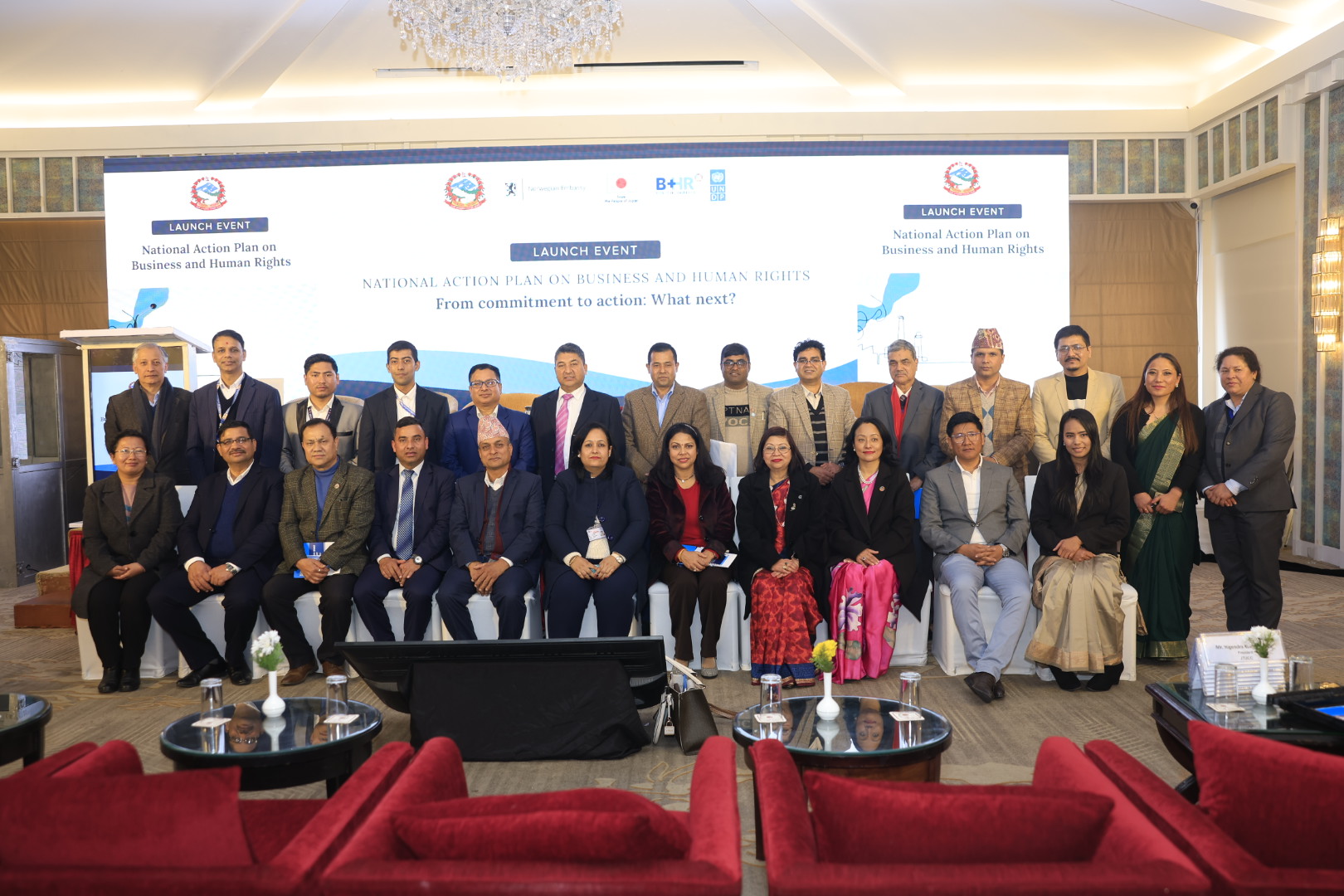Nepal Government Unveils National Action Plan on Business and Human Rights
January 23, 2024

23 January, Kathmandu. The Government of Nepal, Ministry of Labour, Employment and Social Security (MoLESS) has launched the National Action Plan on Business and Human Rights, a significant milestone in promoting responsible business and strengthening human rights standards in Nepal.
The National Action Plan (NAP) endorsed by the government on 27 December 2023 – is a clear commitment from the Government of Nepal to promote economic development while safeguarding the rights of its citizens and the environment. NAP will be effective for next five years from 2024-2028. With this, Nepal has become the second country in South Asia and the 41st globally to adopt such a strategic framework.

Amidst the event in Kathmandu, Honorable Minister, Mr. Sharat Singh Bhandari, Minister for Labour, Employment and Social Security launched the NAP. Addressing the event, Minister Bhandari said, “The private sector affects the daily lives of every individual in Nepal. For this reason, it is important to ensure that businesses respect human rights throughout their operations,”.
The NAP was developed in alignment with national provisions and commitments to human rights, as well as international human rights standards like the UN Guiding Principles on Business and Human Rights (UNGPs) – the most authoritative and widely adopted set of principles for responsible business, unanimously endorsed by the UN Human Rights Council in 2011. It outlines expectations and duties of the government and businesses in Nepal to respect, protect, and fulfil human rights through a comprehensive set of actions across six thematic areas – labour rights, migrant workers’ rights, consumer protection, environment and Indigenous People’s rights, women and children’s rights, and non-discrimination, gender and social inclusion.
During the event, there was a unified call for collaboration and coordination for the successful implementation of the NAP. “I hope that this National Action Plan will enhance standards and practices regarding business and human rights to achieve tangible results for affected individuals and communities, and thereby contributing to socially sustainable globalization,” said Toshiyaki Endo, First Secretary at the Embassy of Japan in Nepal.

“This milestone presents a clear opportunity for diverse stakeholders to come together to enhance responsible business through a collaborative process over the next five years,” said Ayshanie Medagangoda-Labé, Resident Representative for UNDP Nepal. “UNDP remains committed to supporting the Government of Nepal in implementing the NAP,” she added.
The NAP aims to support companies in managing human rights risks within their operations and supply chains, ensuring they are prepared for an accelerated global shift toward responsible business conduct.
Increasingly, leading global economies are taking action to promote responsible supply chains, for example, through the Government of Japan’s Guidelines on Respecting Human Rights in Responsible Supply Chains or the European Union’s Corporate Sustainability Due Diligence Directive. The adoption of the NAP by the Government of Nepal sends a strong narrative to investors that Nepal is a good place to do business.
The NAP is the outcome of collaboration between MoLESS and UNDP in Nepal, and other partners, supported by the Government of Japan and the Government of Norway. Before embarking on the separate plan of action, the initiative was initially identified as one of the key actions under the national human rights action plan introduced by the government of Nepal in 2020. As a follow-up intervention, the government established a task force under the leadership of MOLESS, including representatives from the Prime Minister's office, Ministry of Law, Justice and Parliamentary Affairs, Ministry of Industry, Commerce and Supplies, MOLESS, and the Federation of Nepalese Chambers of Commerce and Industries. This collaborative effort adopted a rigorous, participatory approach, including a series of consultation workshops, focus group discussions, validation, online feedback collection, thematic expert discussion, assessment and technical working group discussions to solicit feedback from businesses, civil society organizations (CSOs), international experts, and others on drafts of the action plan to ensure its quality and effectiveness.
***

For media enquiries:
Richa Ranjitkar, Communications Analyst, UNDP Nepal
Email: richa.ranjitkar@undp.org
For technical details:
Mr. Tek Tamata, Portfolio Manager, UNDP Nepal

 Locations
Locations


